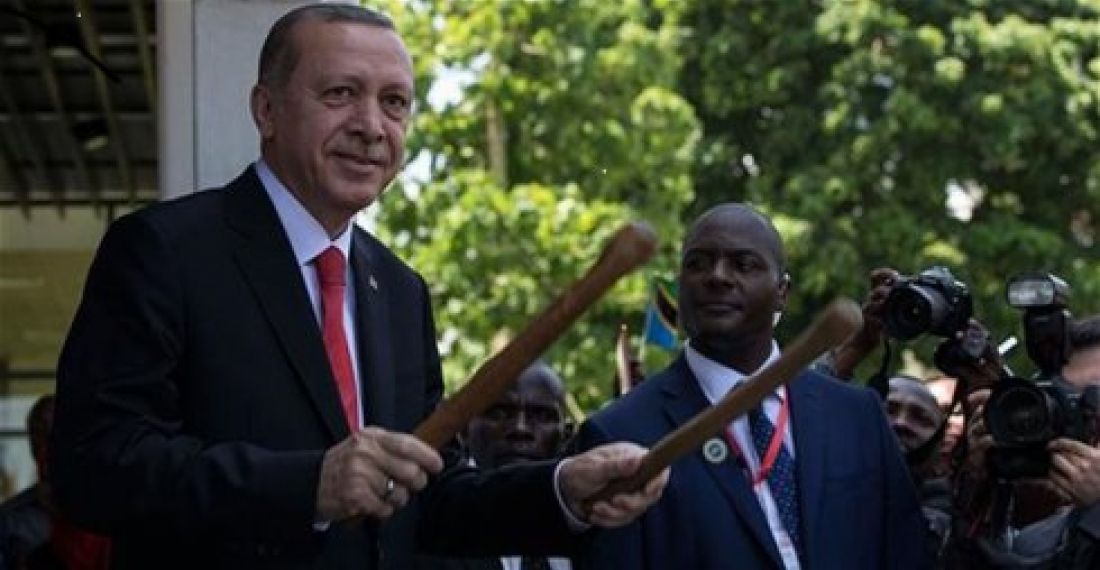Erdogan has plenty of political shrewdness, but time will tell if now that he has unquestioned power, he can translate this into statesmanship and wisdom, says Dennis Sammut in this commentary
With all its weaknesses, Turkey remains a vibrant democracy. The elections held this Sunday were, despite obvious shortcomings, an impressive exercise of political will. Fifty million Turks voted to elect a president and a parliament. Recip Tayip Erdogan's victory was large enough to be convincing and small enough to be credible. The opposition put up a stiff challenge - better than was expected. There was high voter turnout and active voter participation in the campaign
As soon as the dust of the election campaign settles down, the serious business of tackling Turkey's challenges must start. They can be grouped together in five broad themes: the economy; the Kurds; the neighbours; governance; and social cohesion.
Many have speculated that the Turkish economy is heading to a crisis, and that the snap elections were called so that the government could avoid a poll during a slump. Government spokespersons say that the best of the Turkish economy is yet to come. There are increasing signs that the Turkish economy is overheating and there is pressure on the currency. Yes other aspects of the Turkish economy remain resilient. Tourism is booming once more, and the manufacturing sector remains competitive. Erdogan needs to let professionals manage the economy and resist the temptation to dabble in response to political needs.
The election once more exposed the problems related to the Kurdish issue in Turkey. The exponent of the Kurdish case in the presidential race was Selahattin Demirtas contested the election from behind bars, and came third with more than four million votes. His case worries many in Turkey and outside. Demirats is the best bet that Erdogan has if he wants to make his peace with the broad mass of the Kurdish people who still feel they are not treated properly in the Turkish state. The Kurdish oriented HDP has secured around sixty seats in the new parliament. They must be allowed to represent their voters without harassment. Erdogan once harboured ambitions of securing a total peace with the Kurds, including by bringing in those who have taken to violence to fight for their cause back into the fold. He must rekindle these ambitions now that he has a renewed mandate.
For the first time in a long while foreign policy was an issue in the election. How to deal with neighbours such as Syria, and broadly where Turkey stands in its relations with NATO and the EU. Despite the number of moments of awkwardness experienced in recent years, Erdogan's Turkey remains a loyal NATO ally and a candidate member of the European Union. Both relations cannot be taken fore-granted by either side any more. The west needs to fine tune its relations with Turkey, take more time to understanding Turkish sensibilities, and yes where appropriate and where it matters stand up to Erdogan despite his undoubted popular appeal.
Internally Turkish society is divided and polarised and there are serious societal divisions between religious and secularists, although the specific Turkish meaning of the two words is somewhat different than perhaps is understood outside Turkey. Turkey remains by and large a tolerant society - and should therefore be able to manage the debate which is ongoing, and which is likely to become even more intensive in the future. In this climate individual freedoms become paramount, and here Turkey's engagement with European institutions take on a particular importance.
The elections were an important exercise in democracy. Their importance should not be underestimated, regardless of shortcomings. But the pressures on Turkey's democratic foundations that the opposition has spoken about during the election campaign are not imaginary. It is here that Erdogan and this point needs to stop being a wily politician looking after the interests of his party, and start being a wise statesman. He has the capacity to do this - the question is if he has enough will.
A solution to many of Turkey's problems can be more easily achievable if there is a re-organisation of the Turkish state, with a devolution of power to regions and provinces. This will take political courage, and will be resisted by big chunks of the establishment - regardless of their political affiliation. Such a move will balance the new concentration of power in the presidential palace in Ankara which the present situation now signifies. It can also help heal some of the divisions in Turkish society.
This election triumph is Erdogan's big moment. He now has more power than any other Turkish leader since Ataturk. His agenda is ambitious, if somewhat lacking in specifics. The challenges in front of him are enormous. And the big question is whether his political shrewdness, of which he undoubtedly has plenty, can be translated to statesmanship and wisdom. Many in Turkey and outside will rush to answer this question with a yes or a no. I prefer to say that time will tell.
source: Dennis Sammut is the Director of LINKS (Dialogue, Analysis and Research). His Monday Commentary is published weekly on commonspace.eu. dennis@links-dar.org
The views expressed in opinion pieces and commentaries do not necessarily reflect the position of commonspace.eu or its partners
Photo: President Erdogan playing the Tam Tams during a recent visit to Africa (archive picture)






